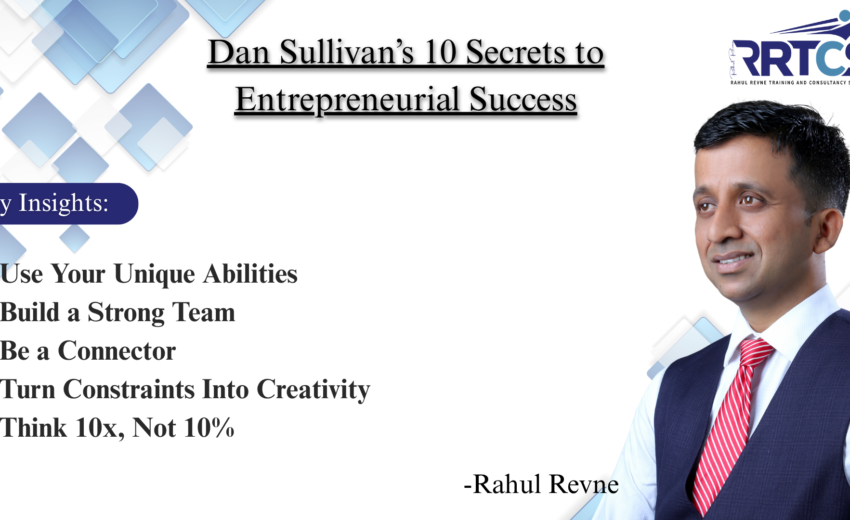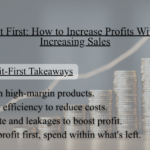
In today’s fast-paced, ever-evolving business landscape, being a successful entrepreneur demands more than just hard work. It requires a sharp mindset, strategic thinking, and a clear understanding of where your strengths lie. Dan Sullivan—founder of Strategic Coach and a globally respected entrepreneur—has spent decades mentoring high-performing business leaders. His career advice offers practical, actionable insights for anyone looking to elevate their entrepreneurial journey.
Below are ten of Dan Sullivan’s most powerful success principles, paired with real-world examples of how top entrepreneurs have embodied these lessons.
1. Focus on Your Unique Abilities
The foundation of success begins with identifying your “zone of genius”—the skills and talents that come naturally to you. Delegate everything else.
Example: Steve Jobs concentrated on product vision and design at Apple while delegating operations and logistics to trusted team members. This focus helped shape Apple’s iconic product identity.
2. Surround Yourself with Exceptional People
No great entrepreneur succeeds alone. Build a team of individuals whose strengths complement your own and who believe in your vision.
Example: Richard Branson attributes much of Virgin Group’s success to the exceptional people he surrounds himself with—people who can execute big ideas and turn them into reality.
3. Be a Connector
Successful entrepreneurs are often those who bring people together to create new opportunities.
Example: Adam Grant, organizational psychologist and best-selling author, has built a network by connecting individuals across industries, sparking collaborations that lead to innovation.
4. Embrace the Power of Constraints
Rather than viewing limitations as setbacks, use them to fuel creativity and innovation.
Example: When Snapchat started gaining traction, Instagram embraced the challenge by doubling down on visual storytelling—leading to the successful launch of Stories and IGTV.
5. Aim for 10x, Not 10%
Incremental growth is fine—but transformational growth changes industries. Think bigger.
Example: Elon Musk didn’t just want to build electric cars—he aimed to redefine the future of transportation and space travel. That bold 10x thinking propelled Tesla and SpaceX to global prominence.
6. Continuously Innovate and Iterate
Innovation is not a one-time event. Success comes from consistently improving and evolving.
Example: Jeff Bezos transformed Amazon from an online bookstore to a global tech powerhouse by continually testing, iterating, and expanding the business model.
7. Communicate with Clarity
A clear message is a powerful one. Great entrepreneurs know how to articulate value and vision.
Example: Sara Blakely built the Spanx brand through clear, relatable messaging that resonated with everyday consumers, turning a niche product into a global phenomenon.
8. Develop a Long-Term Vision
A strong long-term vision serves as a compass for decision-making and strategy.
Example: Google’s founders, Larry Page and Sergey Brin, envisioned “organizing the world’s information.” That guiding principle has driven innovation across all of Google’s services and products.
9. Embrace Failure as a Learning Tool
Failure is not the opposite of success—it’s a vital part of the process.
Example: Oprah Winfrey faced early setbacks in her career, including being told she was “unfit for TV.” She turned those failures into fuel, building one of the most influential media empires in the world.
10. Stay Committed to Personal Growth
Great entrepreneurs never stop learning. Continuous personal development is a non-negotiable.
Example: Warren Buffett, despite decades of success, still spends hours reading and learning each day. His commitment to growth has helped him stay ahead of market trends for decades.
Dan Sullivan’s advice provides a powerful framework for entrepreneurs who want to grow not just their businesses, but themselves. By focusing on your unique abilities, nurturing meaningful relationships, embracing constraints, and aiming for bold goals, you can navigate entrepreneurship with confidence and clarity.
Success doesn’t come from doing more—it comes from doing what matters most. Adopt these ten principles, and you’ll be well on your way to building something truly extraordinary.












